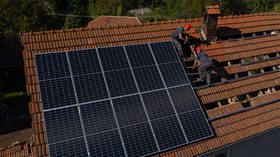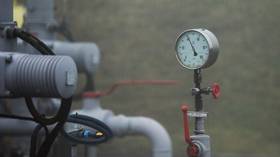EU sees rise in demand for energy-saving homes – Bloomberg

The energy crisis and soaring heating costs have pushed Europeans toward energy-efficient home improvements and so-called “passive houses,” buildings with ultra-low energy consumption, Bloomberg reported on Friday.
According to a survey by a Sweden-based research company Novus, two thirds of Swedish households have made energy-saving home improvements in the last six months, from installing efficient lighting to changing windows and doors to more modern versions.
Another survey cited that the report showed that 70% of Germans have bought energy-saving products this year. An earlier UK poll also showed that around a quarter of respondents were thinking of modernizing their homes in terms of energy-efficiency.
The so-called “passive houses” have also been gaining in popularity, the report states. The concept of these homes was first introduced in the aftermath of the 1970s oil crisis, and envisions a combination of construction, insulation and ventilation systems aimed at storing and reusing the heat within the building, which helps to keep conventional heating use at a minimum.
Swedish construction company Fiskarhedenvillan saw increased demand for its passive house models this year, the report stated. UK’s Norrsken, which also builds these types of houses, said there has been a “definite increase” in orders for upgrading windows and doors to more energy-efficient models.
The company noted that home improvements made up over half of its orders in the past two months, while prior to that they made up only around 30%.
The energy crisis in Europe began in the spring, amid Ukraine-related Western sanctions against Moscow and Russia’s response measures, which caused supplies from Russia to drop and energy prices to spike. In order to reign in the crisis, many European countries introduced energy-saving measures and launched campaigns to promote energy efficiency. Over the summer, the EU countries also agreed to reduce gas consumption by 15% until the end of March 2023. Earlier this month, they also reached an agreement to cap wholesale gas prices within the bloc.
For more stories on economy & finance visit RT's business section













